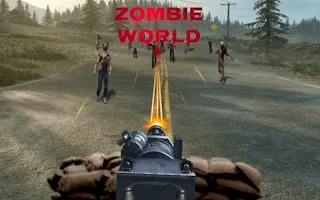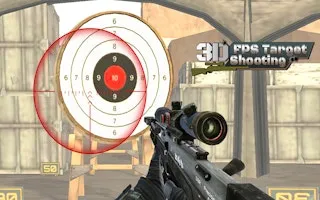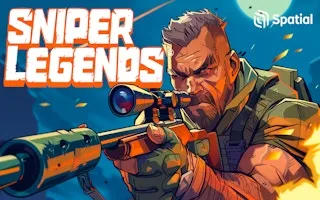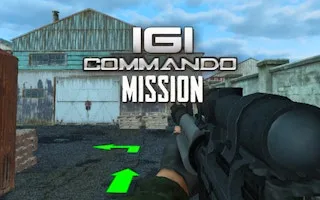Shooter Games
97 games in total. Page 1 of 3
Shooter games, a beloved gaming category, deliver fast-paced, action-packed gameplay with intense combat scenes. Explore the diverse sub-genres and learn why shooter games continue to captivate players globally.
Shooter games have firmly established themselves as one of the most influential and dynamic categories in the gaming world. Combining high-octane action, strategic gameplay, and immersive environments, shooters cater to a broad audience, ranging from casual players to hardcore enthusiasts. Whether through first-person immersion or third-person perspectives, shooters offer a thrilling gaming experience that keeps players on the edge of their seats.
A Brief History of Shooter Games
Shooter games have come a long way since their inception. The early years of this genre saw titles like Doom and Wolfenstein 3D, which pioneered the first-person shooter (FPS) format. These games laid the foundation for the mechanics and features that define modern shooters. Over time, developers began experimenting with new mechanics, introducing third-person shooters (TPS), tactical shooters, and hero-based shooters. Today, the shooter genre spans a vast array of styles, with games offering not just action but also deep narratives, character progression, and expansive multiplayer modes. Games like Call of Duty, Apex Legends, and Gears of War represent the pinnacle of the genre, blending engaging storytelling with exhilarating gameplay.First-Person Shooter (FPS): Immersive and Intense
The hallmark of the FPS sub-genre is the immersive perspective it offers. Players experience the game through the eyes of the protagonist, providing a heightened sense of presence in the game world. In titles like Counter-Strike and Call of Duty, players must rely on quick reflexes, precise aim, and tactical awareness to succeed. FPS games often feature expansive multiplayer modes where teams compete in high-stakes scenarios, making them popular in the competitive gaming scene. Many FPS games, such as Battlefield and Halo, blend fast-paced combat with large-scale environments, creating dynamic battlefields where players must constantly adapt. These games challenge players to balance strategic thinking with rapid action, making each match unique and unpredictable.Third-Person Shooter (TPS): Broader Perspective, Deeper Strategy
While FPS games focus on immersion, third-person shooters provide players with a broader view of the battlefield. This perspective allows for greater spatial awareness and often includes advanced movement mechanics, such as cover systems and acrobatic maneuvers. Games like Gears of War and Fortnite demonstrate the versatility of TPS games, combining intense combat with strategic elements. TPS games often feature cooperative modes where teamwork is crucial. In titles like Fortnite, players can build structures, take cover, and outmaneuver opponents. The third-person perspective also lends itself to more cinematic storytelling, as players can see their characters interact with the environment in more dynamic ways.Tactical Shooters: Strategy Meets Precision
Tactical shooters emphasize careful planning, teamwork, and precision. These games often feature slower-paced combat that rewards players for strategic thinking and coordination. Rainbow Six Siege is a prime example of this sub-genre, where players must carefully plan their approach, use environmental destruction to their advantage, and work together to achieve victory. Unlike traditional shooters, where speed and reflexes are paramount, tactical shooters require players to think several steps ahead. Every action must be carefully considered, from choosing the right weapon loadout to positioning on the map. Tactical shooters are often favored by players who enjoy a more cerebral approach to gaming, where the difference between success and failure can hinge on a single well-executed plan.Hero Shooters: A Blend of Strategy and Character
Hero shooters, a relatively new addition to the genre, combine the fast-paced action of traditional shooters with the strategic depth of character-based gameplay. In games like Overwatch and Apex Legends, players select from a roster of heroes, each with unique abilities and playstyles. This adds a layer of strategy, as teams must coordinate their hero selections and use each character’s strengths to their advantage. The introduction of hero shooters has breathed new life into the genre, offering players more variety and personalization. By focusing on team dynamics and character synergy, hero shooters appeal to players who enjoy both action-packed combat and strategic depth. The combination of unique abilities and fast-paced gameplay creates exciting, unpredictable matches that keep players coming back for more.The Appeal of Multiplayer Shooters
Multiplayer modes are a staple of the shooter genre, offering endless replayability and the opportunity for players to test their skills against others. Games like PlayerUnknown's Battlegrounds (PUBG), Call of Duty: Warzone, and Counter-Strike dominate the multiplayer shooter landscape. These games feature large-scale battles where players must outwit and outshoot their opponents to be the last one standing. The rise of eSports has further solidified the popularity of multiplayer shooters. Games like Counter-Strike and Overwatch have become mainstays in competitive gaming, with professional leagues, tournaments, and millions of viewers tuning in to watch the action unfold. For many players, mastering a multiplayer shooter becomes a personal challenge, as they strive to climb the ranks and prove their skills in a global arena.Shooter Games on Mobile: Fast-Paced Action on the Go
While shooter games have traditionally been associated with consoles and PCs, the rise of mobile gaming has brought the genre to new platforms. Games like Call of Duty: Mobile and PUBG Mobile offer console-quality experiences on handheld devices, allowing players to enjoy fast-paced action wherever they are. Mobile shooters have become increasingly sophisticated, featuring competitive multiplayer modes, detailed graphics, and intuitive controls. The accessibility of mobile shooters has helped introduce the genre to a wider audience. Casual gamers who might not own a gaming console can now experience the thrill of a shooter on their smartphones, while more dedicated players can enjoy the convenience of gaming on the go. The success of mobile shooters demonstrates the genre’s adaptability and enduring appeal.Why Shooter Games Remain Popular?
Shooter games continue to captivate players around the world due to their ability to combine intense action with strategic depth. Whether players prefer the immersive experience of FPS games, the broader perspective of TPS, or the team dynamics of hero shooters, the genre offers something for everyone. The shooter genre has also evolved to incorporate more complex narratives and character development, as seen in games like BioShock and The Last of Us. These titles prove that shooter games can offer not just adrenaline-fueled action but also meaningful stories and emotional engagement. As technology continues to advance, the future of shooter games looks bright. With innovations in graphics, gameplay mechanics, and multiplayer experiences, shooters will remain a dominant force in the gaming industry for years to come. By diving into the rich history, sub-genres, and appeal of shooter games, this article offers an in-depth look at one of the most exciting categories in the gaming world. From classic titles to modern innovations, shooter games provide endless excitement and challenge for players of all skill levels.PunyGame © 2022. All rights reserved.



































